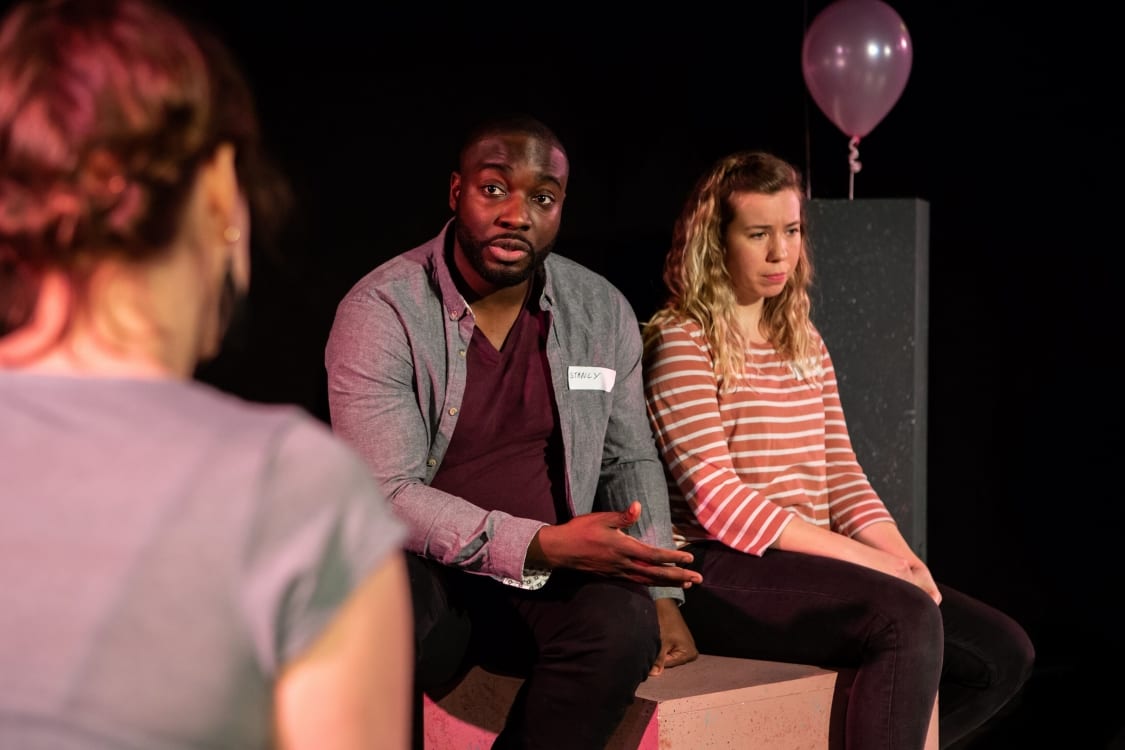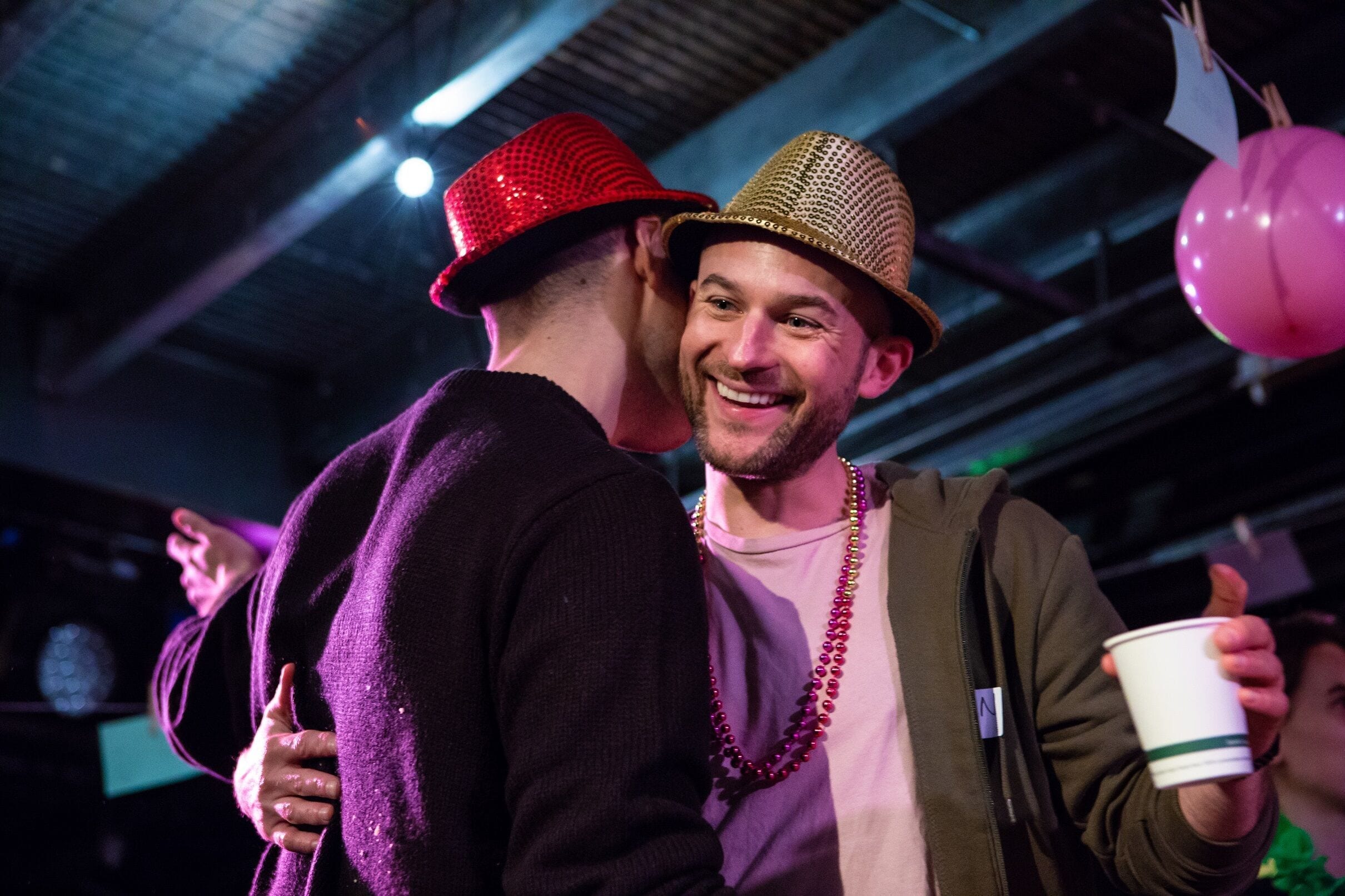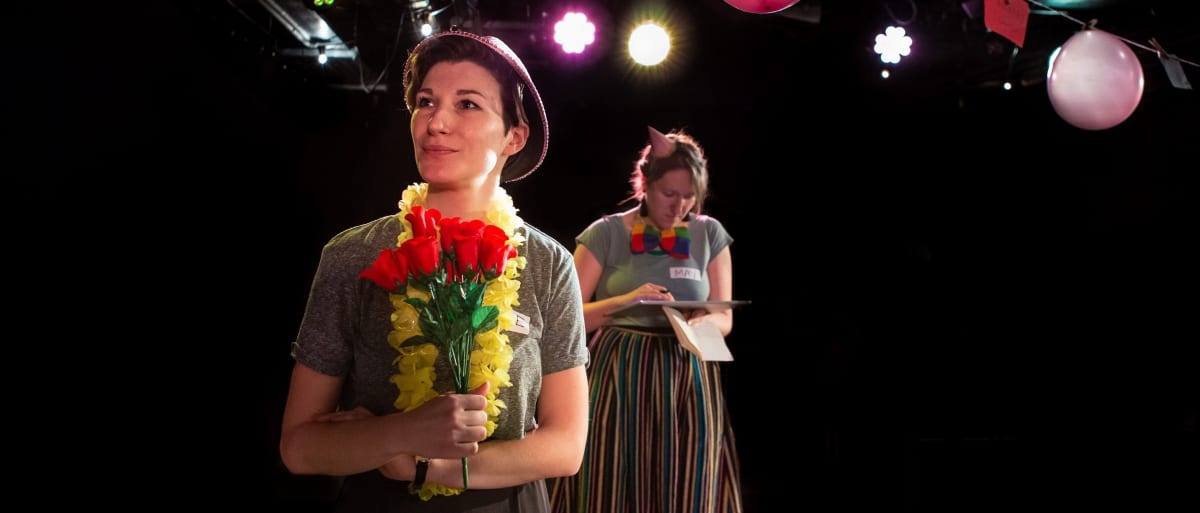Guy’s and St Thomas’ NHS Foundation Trust is running an initiative in this year’s festival in the Waterloo Vaults called ‘Let’s Talk’. The aim is to find better ways to talk about and prepare for death. ‘A Wake in Progress’ is one of the sponsored shows, and in an hour the performers do a great job with the simplest means in getting us to laugh, whether uneasily or uproariously, and to reflect with sensitivity on a subject we still continue to duck just as we know it will still embrace us all.
It is a disarmingly simply scenario and setting, partly scripted and partly resting on audience interaction. Fine Mess Theatre get us thoroughly involved at every stage with a lot of Q & A, the answers to which are then incorporated cleverly into later points of the dialogue. Barriers are broken down and our experiences are made part of the mix before the action proper begins. The audience even gets to cast the play and name the lead character even though we did not know it at the time. Apart from that most of the responsibility rests with the five actors, one a capable ringmaster for the event (Amy Fleming), and a minimal scatter of props and costumes along the way.

A young woman, played with great emotional directness and accessibility by Molly Small, is dying of a terminal condition and has decided to stop taking her medication. This causes great consternation among her friends and family, and the early sections of the evening focus on these tensions, exploring the question of where emotional responsibility lies towards oneself and others. There is great sensitivity to the evasions of language here, especially noting the way in which around a dying person the facts of death are rarely discussed. The lack of an effective discourse or vocabulary with which to express anguish or consolation without the sapping effect of euphemism is well demonstrated in the script and acted out by Stella Taylor as the girl’s partner, Daniel Ward as her brother, and Andrew David as her best friend.
Gradually attention shifts to how one will be remembered and what a dying person can do to shape those memories. Starting from the irony that by definition you never get to hear your own eulogies, the central character persuades those closest to her to open themselves up to the idea of a rehearsal of her funeral in which they reveal their heartfelt emotions to each other and to us. On paper this sounds like a perilously mawkish even tasteless endeavour; but thanks to some delicate writing and deft acting it turns out to be a remarkably uplifting experience for the audience.
Part of the skill lies in the naturalism and apparent lack of skill. The halting search for the right words to grasp an impossible situation is moving because it is detached from artificial literary facility and polish and sounds like the struggle of Everyman instead. The search to recognise the inevitability of loss while trying to preserve what was unique about a person becomes exceptionally poignant in the presence of that person herself. And there is plenty of wry humour when she is able to react to what is said.

The lesson appears to be not that everyone should organise their own funerary rehearsal, but that if we can only find the courage then more can be said and done in the face of death than we care to suspect and imagine. This can be liberating not just for the dying person in terms of shaping the ways in which she will be remembered by those who care for her, but also for those who remain, in taking positive steps to ensure that the final section of a loved one’s life may be filled with love far more than anyone thought possible trapped in their own apprehensions of death’s limits.
This show requires tremendous concentration and flexibility on the part of the performers and also a willingness on the part of all present to trust each other and open themselves and their own experiences up to the occasion. It was clear that many of the audience were apprehensive beforehand and/or a bit tipsy, but most left with a bolder spring in their step and a sense of the need to open up in future their full register of potential human connectedness to better embrace the emotional scale of final closure.

